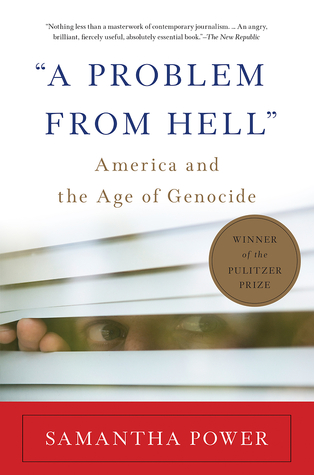More on this book
Community
Kindle Notes & Highlights
If any event could have prepared a person to imagine evil, it should have been this one.
And genocide proceeded unimpeded by U.S. action and often emboldened by U.S. inaction.
Despite graphic media coverage, American policymakers, journalists, and citizens are extremely slow to muster the imagination needed to reckon with evil.
Before I began exploring America’s relationship with genocide, I used to refer to U.S. policy toward Bosnia as a “failure.” I have changed my mind. It is daunting to acknowledge, but this country’s consistent policy of nonintervention in the face of genocide offers sad testimony not to a broken American political system but to one that is ruthlessly effective. The system, as it stands now, is working.8 No U.S. president has ever made genocide prevention a priority, and no U.S. president has ever suffered politically for his indifference to its occurrence. It is thus no coincidence that
...more
“Why are you so interested in the Armenians anyway? You are a Jew, these people are Christians. . . . What have you to complain of? Why can’t you let us do with these Christians as we please?” Morgenthau replied, “You don’t seem to realize that I am not here as a Jew but as the American Ambassador. . . . I do not appeal to you in the name of any race or religion but merely as a human being.”
The United States would offer humanitarian aid to the survivors of “race murder” but would leave those committing it alone.
Lemkin was appalled that the banner of “state sovereignty” could shield men who tried to wipe out an entire minority. “Sovereignty,” Lemkin argued to the professor, “implies conducting an independent foreign and internal policy, building of schools, construction of roads . . . all types of activity directed towards the welfare of people. Sovereignty cannot be conceived as the right to kill millions of innocent people.”2 But it was states, and particularly strong states, that made the rules.
states would rarely pursue justice out of a commitment to justice alone. They would do so only if they came under political pressure, if the trials served strategic interests, or if the crimes affected their citizens.
“We are in the presence of a crime without a name.”32
Genocide has two phases: one, destruction of the national pattern of the oppressed group; the other, the imposition of the national pattern of the oppressor.
What mattered was that one set of individuals intended to destroy the members of a group not because of anything they did but because of who they were.


